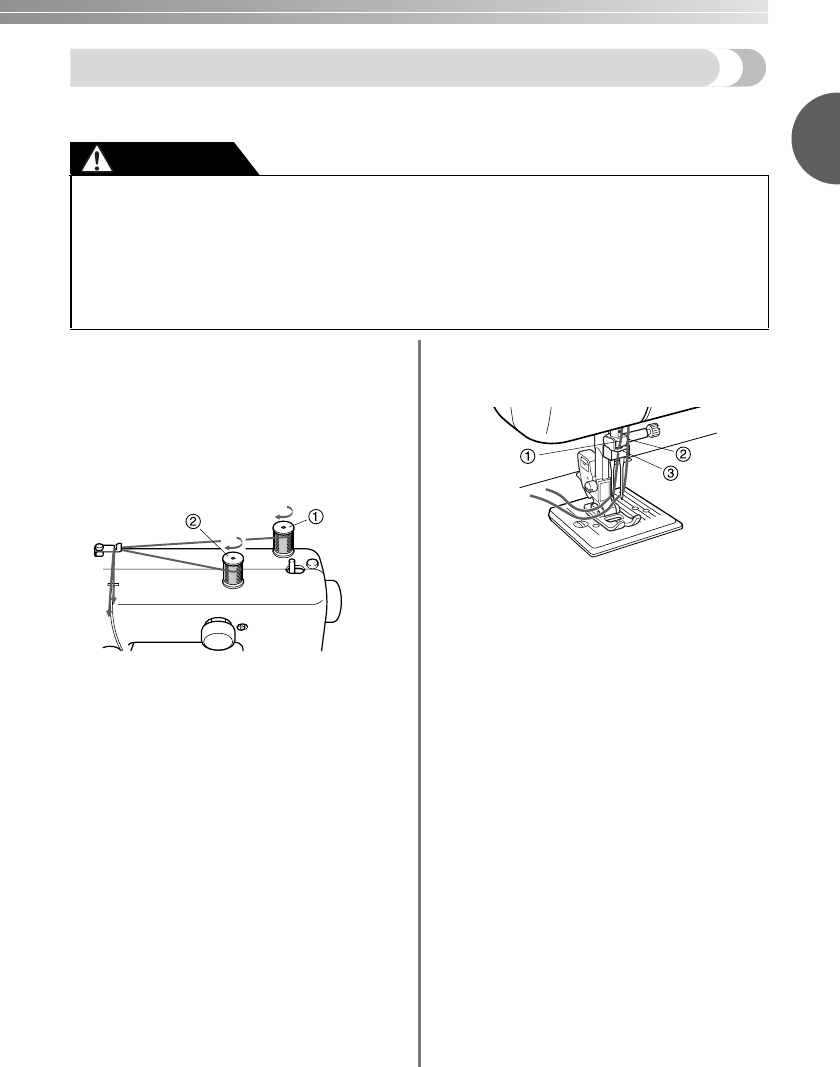
18
1
Sewing with a twin needle (Option)
We have designed your machine so you can sew with the optional twin needle and two top threads. You can
use the same color or two different colors of thread for making decorative stitches.
The stitches available for twin-needle sewing are straight stitches 6 through 10 and zigzag stitch 2.
■ Twin needle threading
a
Attach the twin needle.
Attach the twin needle in the same way as a
single needle (page 16).
b
Attach the extra spool pin.
Put the extra spool pin in the hole on the top of
the machine. Put the second spool of thread
onto the extra spool pin.
a First spool
b Second spool
c
Use the thread from the first spool to thread
the machine to the needle bar thread guide.
The path for threading the machine to the
needle bar thread guide is the same as for
normally threading the machine (for a single
needle). See page 13 for more details.
d
Thread the left needle from front to back.
e
Use the thread from the second spool to thread
the machine to the thread take-up lever.
The path for threading the machine to the
thread take-up lever is the same as for normally
threading the machine (for a single needle).
See page 13 for more details.
f
Thread the right needle from front to back.
Do not pass the thread behind the needle bar
thread guide.
a Left needle thread passes through the needle bar
thread guide.
b Right needle thread passes in front of the needle
bar thread guide.
c Needle bar thread guide
● Use only twin needles that have been made for this machine (part code: X57521-021). Other needles
could break, and damage the machine.
● Do not sew with bent needles. The needle could break and injure you.
● When using the twin needle, be sure to select an appropriate stitch (straight stitches 6 through 10 and
zigzag stitch 2), otherwise the needle may break or the machine may be damaged.
● Slowly turn the handwheel toward you (counterclockwise) and check that the needle does not touch the
presser foot. If the needle hits the presser foot, the needle may bend or break.
● When changing the sewing direction, be sure to raise the needle before turning the fabric. If the fabric is
turned while the needle is lowered, the needle may bend or break.
CAUTION


















